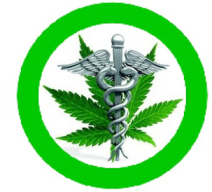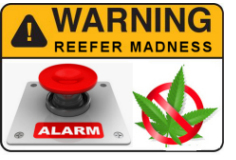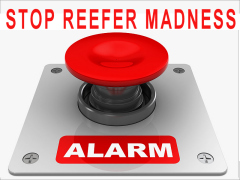Alberta Health Services doctor redneck reefer madness!
Published April 15, 2018, "Health experts warn educators to ramp up readiness for pot legalization" Updated April 16, 2018, "AHS doctor worries more kids will self-medicate with pot once it's legalized" Eva Ferguson - Calgary Herald
April 17, 2018 - Sept. 4, 2002 The science and evidenceBronwyn Beairsto - Vancouver Courier University of British Columbia professor and researcher for the B.C. Centre on Substance Use, M-J Milloy says the link between cannabis and brain development is still merely by association.There a great number of scientists worldwide working on this issue, but there's been no smoking gun, Milloy said. Zach Walsh, another UBC researcher specializing in cannabis, concurs.The evidence is weaker than the rhetoric; According to Walsh, there appears to be a link between schizophrenia and other psychosis and marijuana use, but this could just be an association rather than causal. He notes that there's been a dramatic increase in cannabis use in recent years, especially in Canada, but schizophrenia levels have stayed stagnant. www.vancourier.com/news/4-19-pot-panel-wants-to-clear-the-air-regarding-cannabis-and-youth-1.23270407
Published February 9, 2018, "Why cannabis shouldn't be considered a gateway drug" Calgary professor debunks marijuana myths" Dave Dormer - CBC News U of C associate professor Matthew Hill says some common beliefs around the drug aren't rooted in fact Myth: Cannabis alters brain structure. A: That one I would say, right now from the current studies, that would be false.
Published November 21, 2017, "Five marijuana myths debunked: A public health expert clears the air on misinformation" Kevin Maimann - MetroThe University of Alberta, O'Brien Institute for Public Health, Dr. Elaine Hyshka; Assistant Professor, School of Public Health. Dr. Elaine Hyshka, “There are also people who claim that cannabis is going to basically damage your brain when you use it, especially if you’re young, and that it’s going to contribute to the intellectual downfall of a generation. And that’s also not true,” she said. Published November 14, 2017, "Debunking myths about cannabis legalization" The University of Alberta, O'Brien Institute for Public Healthwww.ualberta.ca/public-health/about/this-is-public-health/this-is-public-health-articles/2017/november/debunking-myths-about-cannabis-legalization
December 16, 2015, "Cannabis for the Management of Pain: Assessment of Safety Study (COMPASS)" Dr. Mark Ware - McGill UniversityOur data show that daily cannabis users had no greater risk than non-users (control group) to experience serious adverse events,’’ explains Dr. Aline Boulanger, director of the pain clinic at the Centre hospitalier de l’Université de Montréal. ‘’We found no evidence of harmful effects on cognitive function, or blood tests among cannabis consumers and we observed a significant improvement in their levels of pain, symptom distress, mood and quality of life compared to controls.
December 2, 2013, "A Controlled Family Study of Cannabis Users with and without Psychosis" Harvard University studyEvidenced that teen cannabis consumption is not lead to the development of schizophrenia later in life. The study compared families with a history of schizophrenia to those without. The study also examined non-psychotic cannabis consumers and non-consuming participant controls. The results of the current study suggest that having an increased familial morbid risk for schizophrenia may be the underlying basis for schizophrenia in cannabis users and not cannabis use by itself.
September 2002 "The Senate Special Committee on Illegal Drug Use" studied the cannabis issue extensively. Senator Pierre Claude Nolin, Chair of the Senate Special Committee on Illegal Drugs.Their unanimous recommendation was that cannabis be legalized in a regulatory framework similar to alcohol. "Scientific evidence overwhelmingly indicates that cannabis is substantially less harmful than alcohol and should be treated not as a criminal issue but as a social and public health issue" www.SenateReport.ca
Download printable PDF document |
News Media - 420
Parliament of Canada E-Petitions |





